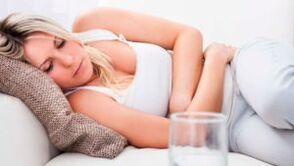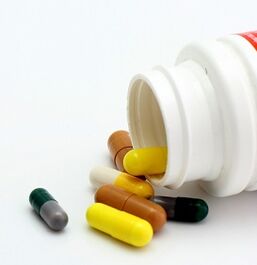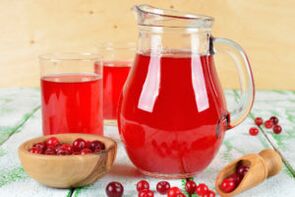
The urinary system is often exposed to infection.One of the common infectious diseases of the urinary tract is cystitis.What to do with cystitis in women?Treatment of pathology must start at the first symptoms.In the absence of chronic therapy and disease, this will be much more difficult to cope.
Factors and symptoms that cause disease
Cystitis is an infection that develops in the area of the bladder.The disease is usually diagnosed in women, but cases of cystitis in men are not excluded.
The reason for the growth of cystitis becomes a common pathogen of plants in the urinary tract of infection:
- Streptococci;
- Escherichia sticks;
- Staphylococci;
- and others.
Infections may be the result of non -compliance with the rules of hygienic rules to take care of the genitals or the results of the inflammatory process.The disease is also transmitted by sexually transmitted (Urelasma or Mycoplasma).
With cystitis, patients have symptoms:
- Pain during urination;
- Sudden attacks of lower abdominal pain;
- A non -completely devastating feeling of urine;
- Urine liquid is not self -control;
- Urine color is mud;
- release urine with blood;
- Temporary fever to 38 degrees.
In women, cystitis treatment is performed on the basis of outpatient by taking the drug.When conducting treatment at the initial stage, the disease may be removed without any complications.
The choice of treatment tactics

The effectiveness of treatments depends on how early the diagnosis is done.Determining the cause of the pathology (identifying the type of infection) also plays an important role.With the development of a form of chronic or acute cystitis, the drug may not work and the infection will progress further, causing kidney and genital diseases.
The main task of experts related to the patient's therapy is to prevent inflammation by destroying pathological microorganisms in the area that damages the urine mucosa.
Choosing a medication that causes cystitis only participates in a doctor taking into account the characteristics of the disease in women:
- Type of infection;
- The level of disease development;
- Personal characteristics of the body (age, gender, weight);
- the presence of contraindications;
- The trend of adverse reactions.
An important point is to determine the reaction of pathological microorganisms to the composition of the drug.For this, a special study conducted to help set the most suitable drugs.
A competent approach to the treatment of cystitis
Drug therapy includes a complex of different groups of groups.A woman who is prescribed from cystitis is not only to destroy infection, but also to prevent inflammation, as well as to reduce the intensity of symptoms.
With complex therapy, the drugs are recommended for groups:
- antibiotic;
- Herbal preparation;
- Anti -spasm;
- Anti -inflammatory;
- Probiotic.
For more effective treatment for cystitis in women, in addition to taking medication, adhering to special diets and observing hygienic measures.
Antibiotic
The main group of drugs helps prevent the progression of bladder infections in women who are antibacterial drugs.
Antibiotics have a strong influence on the weight of the body, so the desire to use them only according to the doctor's regulations.
Plant medicine
Phytopreparation has a lower effect than antibiotics, however, their toxic effects are less, so the use they are allowed during pregnancy (with expert resolution).
In women, cystitis is based on natural ingredients used in combination with antibiotics.Therefore, treatment and recovery faster.
Antispasmodics
With cystitis, patients are often interested in spasms in the urinary tract, especially during urination.To eliminate pain and cramps, a woman is recommended for cystitis with Drotaverin content.
Using drugs capable of using Drotaverin is recommended to treat symptoms.A short -term reception is possible (2-3 days).
Anti -inflammatory drug
In addition to antibiotics, anti -inflammatory drugs prevent the growth of complications, especially with increased risk of nephritis, which can be prescribed for patients with cystitis.
Anti -inflammatory drugs are usually prescribed for disposable use with increased symptomic intensity (pain or temperature).
Probiotic
The use of antibiotics in most cases leads to the violation of the function of the stomach due to the effect of the drug on the digestive tract.To facilitate the activity of the gastrointestinal tract during the treatment period, the amount of probiotics is prescribed.
Drinking probiotics reduces the risk of adverse reactions to the drug from the gastrointestinal tract.
Contraindications and side effects
Any drug to treat cystitis in women should be selected to take into account the possible contraindications.During treatment, the patient may also manifest the symptoms of adverse reactions, which is contraindicated, exceeding the recommended dose or the body's possible personal reaction to the drug.
Contraindications:
- personal sensitivity to component components;
- Some chronic diseases;
- impaired renal or liver function;
- The problems of the central nervous system.
Most drugs are not recommended during pregnancy or breastfeeding, as well as at the age of 18 or after 60 years.
Side reaction:
- Gastrointestinal disorders (diarrhea/constipation, nausea, abdominal pain);
- Jump in blood pressure, tachycardia and other disorders of the cardiovascular system;
- headache or dizziness;
- depression state, or mood change;
- allergic reactions on the skin;
- Change urine color (bright yellow).
Taking medicine with the presence of contraindications can cause development or serious diseases simultaneously.With an adverse reaction, patients may be prescribed symptomatic therapy.
Appropriate nutrition during treatment

In order to accelerate the treatment of cystitis and prevent complications combined with the use of drugs, it is necessary to observe the diet to restore mucous mucus and the function of the urine.
For recommended use:
- A large number of fruits, as well as vegetables;
- Fruit drinks, green tea or free (no sugar);
- Cereals close.
Carrots, cabbage, pumpkin, asparagus, bran and cedar seeds should be put into a diet.
With cystitis, the consumption of any type of salt has a stimulating effect on the bladder wall should be excluded.
It is also unexpected to use:
- spice;
- canned food;
- Smoked meat;
- sour;
- Sharp food.
The doctor attended the proper diet recommended or may be sent to a nutritionist.
Cystitis treatment should not start without the preliminary reference of a doctor to set up a personal treatment plan for each woman.


























